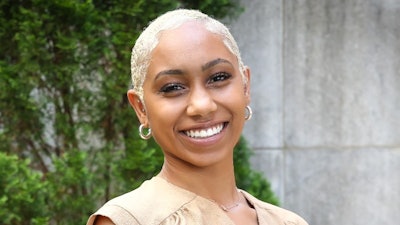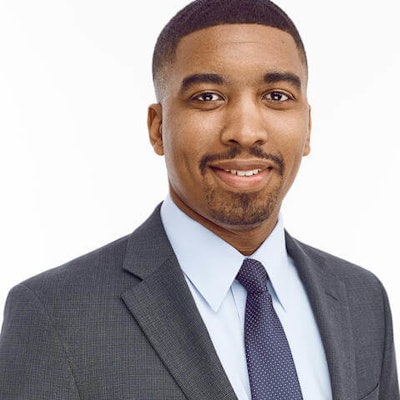In an effort to cultivate more inclusive campuses for LGBTQ students, the Human Rights Campaign Foundation has collaborated with colleges and universities nationwide to develop its Historically Black Colleges and Universities Program and its PrEP Ambassador Program. The programs focus on building a network of leaders to eliminate stigma and enrich the college experience for LGBTQ students attending HBCUs.
The PrEP Ambassador Program selects 11 students on HBCU campuses to educate and help eliminate HIV and AIDS-related stigma. PrEP (Pre-Exposure Prophylaxis) is a medication that is over 99% effective in preventing HIV during sex, and the program ensures that PrEP is offered nationwide on or near HBCU campuses.
Erica McPheeters, PrEP ambassador for Kentucky State University, said fighting the stigma against HIV and AIDS has empowered her and helped change her campus.
 Erica McPheeters is a PrEP ambassador for Kentucky State University.
Erica McPheeters is a PrEP ambassador for Kentucky State University.
"I think [this program is] not only challenging, but it's tremendously rewarding," said McPheeters. "I see so much progress on other campuses, that invokes change in my organization. ... And I think a lot of times, LGBTQ students are not included in these conversations. So, to be working with my peers who are making a difference and being able to witness it in real-time is an amazing opportunity."
Over the past decade, HBCUs have made an effort to address an history of anti-LGBTQ stigma on their campuses. Many schools have established LGBTQ centers on campus, changed admissions policies to be more inclusive, and created a more inclusive curriculum.
Leslie Hall, director of the HBCU Program, said that HBCUs have historically been slower to adopt LGBTQ-friendly policies due to the faith-based roots of many HBCUs and a complex history with LGBTQ communities. Hall says HBCU campuses are working on being more inclusive of the LGBTQ community by addressing HIV-related stigma and the needs of LGBTQ students on campus.
 Leslie Hall is the director of the HBCU Program for the Human Rights Campaign.
Leslie Hall is the director of the HBCU Program for the Human Rights Campaign.
"My personal journey as an openly gay man attending both Bowie State University and Howard University, two Historically Black Colleges and Universities, has greatly influenced my strong commitment to challenging HIV-related stigma and providing students with the necessary resources to support their healthy sexual practices," said Hall. "My daily work revolves around creating a safe, healthy, and inclusive college environment for LGBTQ+ HBCU students, ensuring they have access to the resources and support they need."
In the U.S., over 1.1 million people are living with HIV, according to the Centers for Disease Control and Prevention (CDC). People between the ages of 13-24 account for one in every five new cases of HIV. Black and Latinx people are impacted significantly by systemic and racial barriers to healthcare and a lack of comprehensive sexual education, further exacerbating stigma among these communities. According to the CDC, 38% of the U.S. population is in southern states, though about 52% of new HIV cases are documented in the South.
According to Advocates for Youth, an organization that advocates for comprehensive sex education, prevention is the most crucial element of HIV advocacy. Many southern states do not require HIV and AIDS education in schools, and some states that require HIV education in the sex education curriculum will not require the lessons to be medically accurate.
McPheeters said many students on her campus weren't familiar with HIV statistics, PrEP, or any other aspect of HIV. In a research project, she asked students to share what they knew of HIV and AIDS to gauge the knowledge level of her campus. She said she was disturbed by the results that highlighted misinformation and negative stigma in her research, including ideas such as "you're going to die from HIV" and "people with HIV never being able to have an active sex life." She brought her findings to the other ambassadors and created a better plan to educate her peers.
"The stigma that's still present, even with all of the technology and social media and just overall spread of information we have, a lot of it doesn't actually provide students resources," said McPheeters. "I think a lot of the work that student ambassadors are able to do is meet students where they're at to not only peer-educate but provide a sense of stability and secureness within their campus and feel like they actually have resources that are going to support them in the long run."
Veronica Fernandez-Alvarado can be reached at [email protected]















